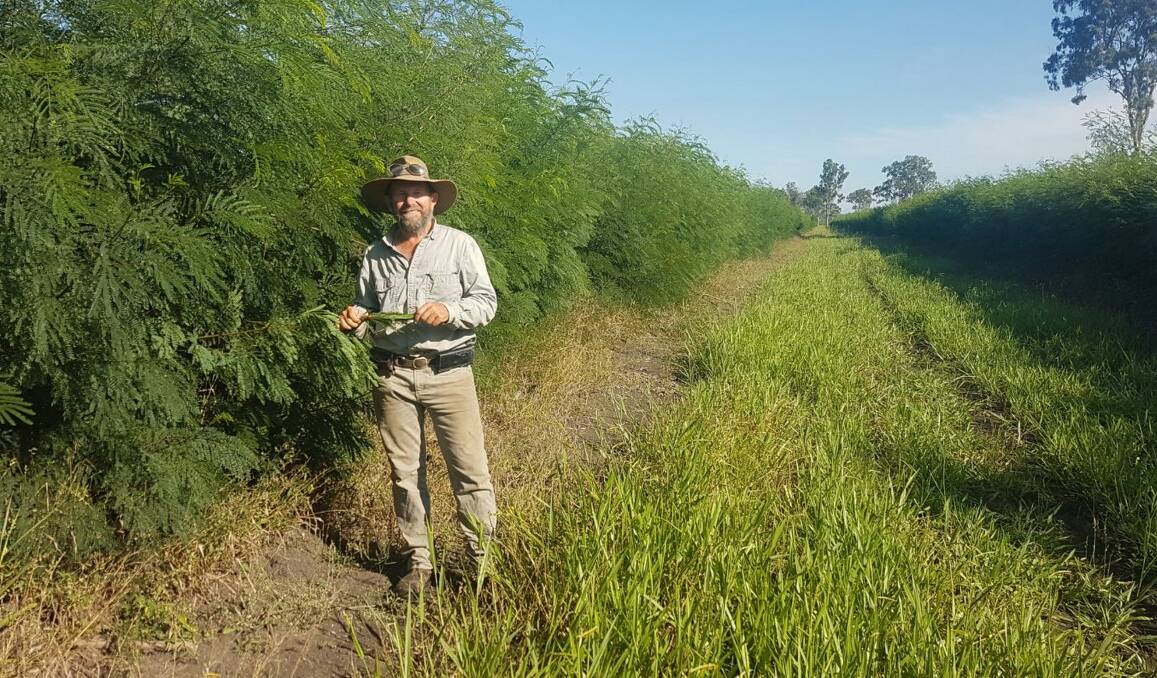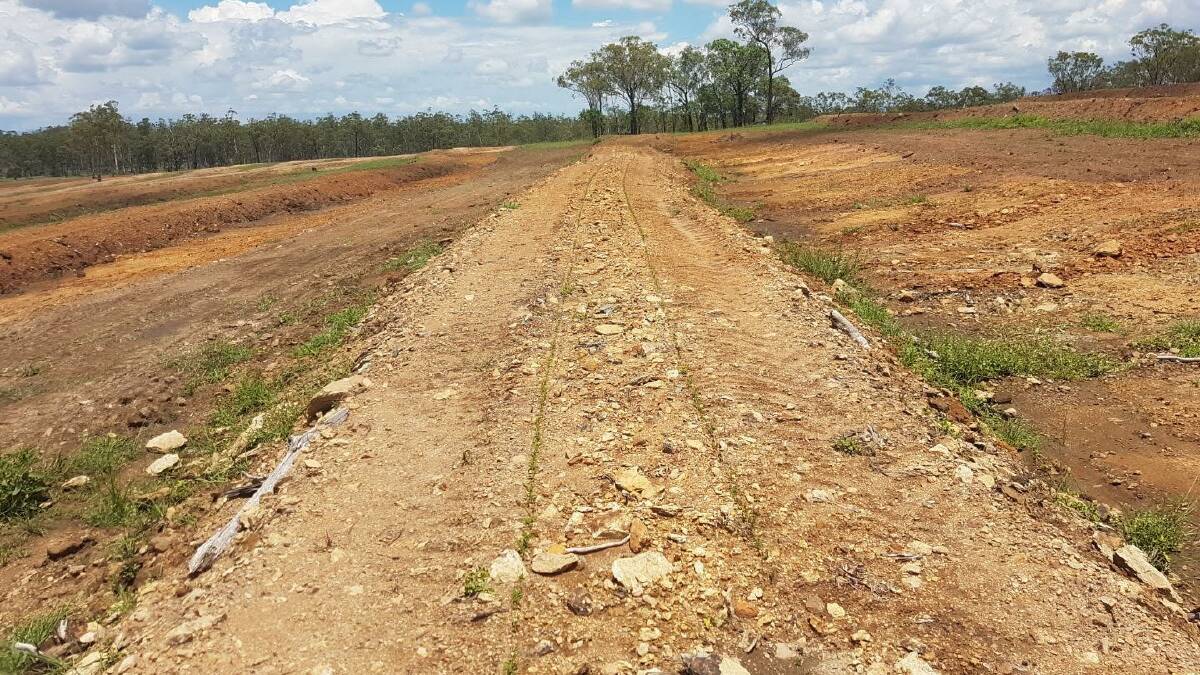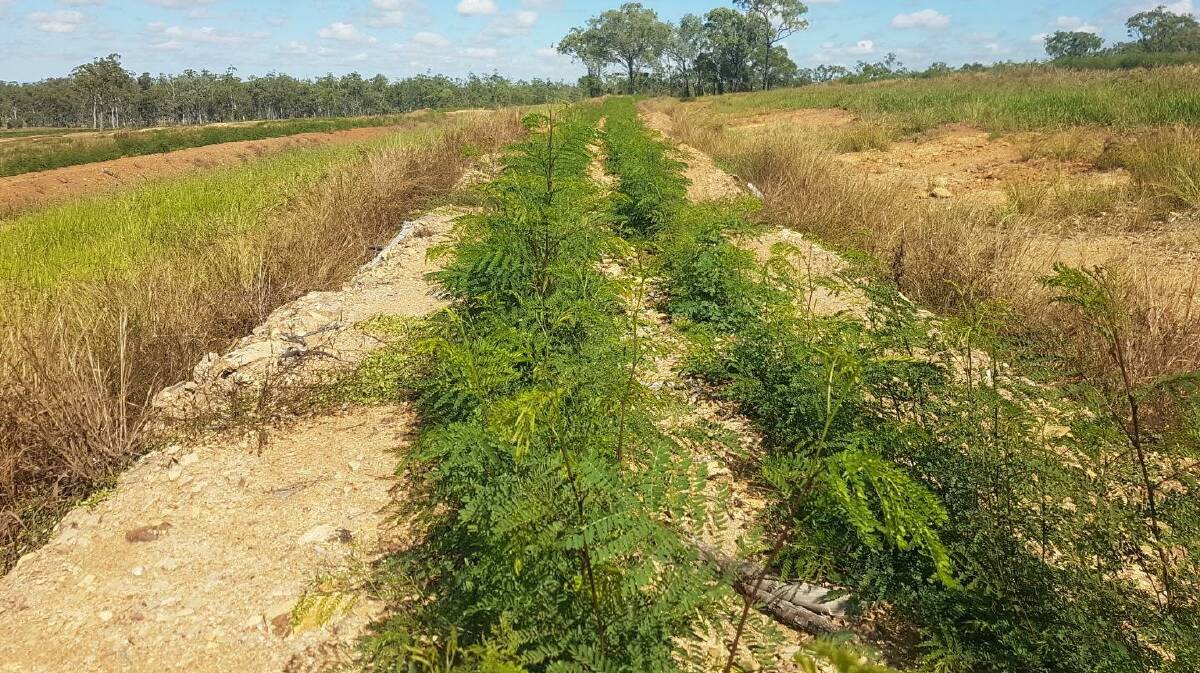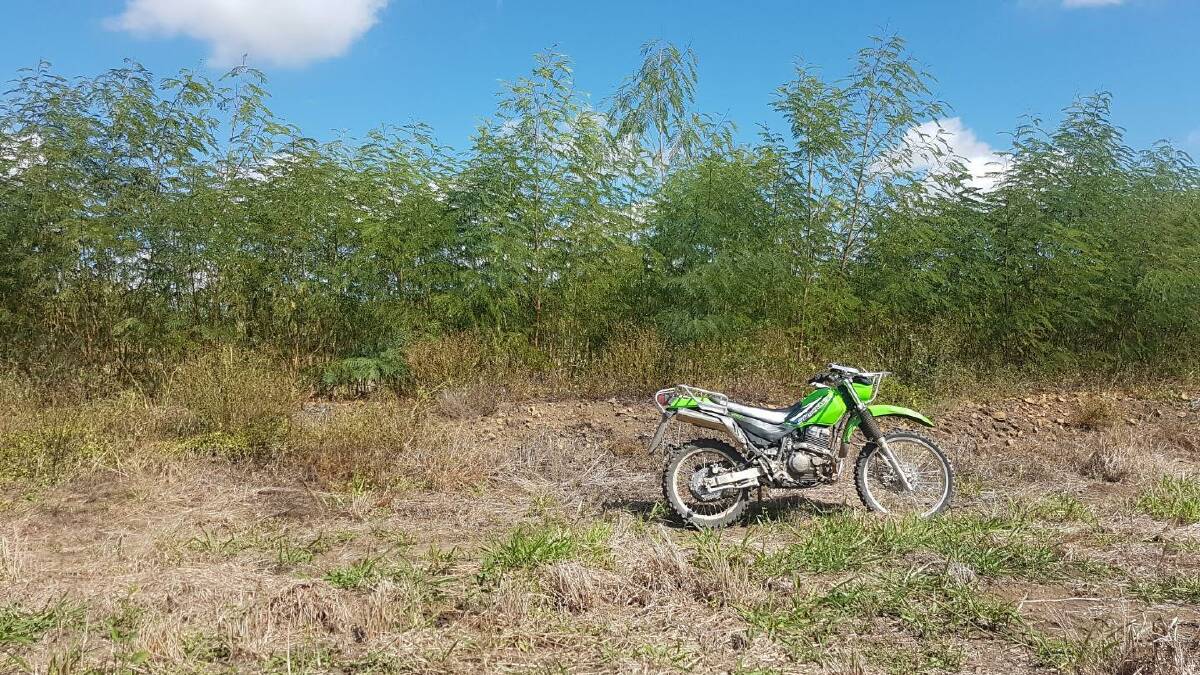
CENTRAL Queensland leucaena breeder Bruce Mayne is investigating how the versatile tree legume can significantly increase the productivity of under-performing coastal country.
Mr Mayne, who operates Mayne Seeds from his 1500 hectare property Fairview at Calliope, said he was developing country previously considered unsuitable for leucaena.
The country on Fairview is typical of hundreds of thousands of hectares of coastal country in Queensland.
The key was having well-drained soils and a reliable 900mm-plus annual rainfall, he said.
"There's no doubt leucaena is more expensive to develop in coastal country, but the compensation is the three to four times increase in productivity," Mr Mayne said.
"This coastal country is typically producing only about 20-25kg of liveweight gain an acre a year. With leucaena, the gains are in the order of 80-100kg."
To quantify the gain in productivity, Mr Mayne said based on $3/kg liveweight value, the production on coastal country went from about $75/acre up to about $225/acre.
That meant weaners could be turned off at an earlier age.
Mr Mayne said while the cost of developing scrub country was in the range of $250/acre, coastal country was in the order of $400-$500/acre because of extra ground preparation and initial fertiliser requirements, particularly phosphorus.
To demonstrate the value of leucaena in lower-production coastal country, Mr Mayne will run a DAF-supervised trial involving six mobs of 20 cattle, starting in June.
Five of the mobs will be run on the psyllid resistant Redlands variety leucaena, with the sixth mob in a typical paddock of coastal grass, with both native and some improved pastures.
The 12 month trial will involve a weigh-in later in the year. The cattle will be weighed every eight weeks and be sold at the special weaner and feeder sale at Gracemere in early June, 2021.
"We're very keen to show the results we can achieve on leucaena," he said.
Mr Mayne is also trialing planting leucaena on narrowleaf ironbark ridges with only about 10cm or less of soil on his Calliope property Fairview.


After the establishment of a successful stand in 2019, Mr Mayne has now planted 50ha of leucaena on previously unproductive country.
"It's taken a fair bit of work but the leucaena is growing very well," Mr Mayne said. "Once the tap root gets down, it just takes off."
The leucaena was planted "essentially into gravel" with the topsoil returned over the seed. Phosphorus was also applied.
Mr Mayne first grew leucaena on scrub country on Broken Plains at Rolleston in 1991.

But it wasn't until 1998 that he began seeing the massive impact on his property Bandana, also at Rolleston.
"That was when we realised there was a three to four times increase in production on forest country," he said.
"Now the aim is to increase the productivity of coastal country."
Mr Mayne had organised a field day in conjunction with the Leucaena Network and Nutrien to showcase the Fairview operation next month. However, it is now planned for later in the year.


